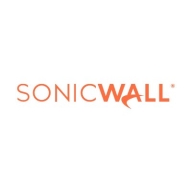


Cisco Secure Firewall and SonicWall TZ are both competing in the cybersecurity space. Cisco Secure Firewall stands out with its advanced security features and scalability, whereas SonicWall TZ is better known for its ease of use.
Features: Cisco Secure Firewall offers robust threat intelligence, advanced security analytics, and extensive integration capabilities. It is designed for comprehensive threat defense. By contrast, SonicWall TZ has ease of use, VPN connectivity, and versatile security features, focusing on streamlined functionality rather than extensive defense systems.
Room for Improvement: Cisco Secure Firewall could improve its complexity, making it more user-friendly and reducing the amount of configuration needed. Enhanced documentation and user community support could also be beneficial. Additionally, streamlining updates for the system might aid continuous protection. SonicWall TZ could benefit from advancing their security features to match more sophisticated threats. Enhancements in data analysis capabilities could provide deeper insights into potential vulnerabilities, and improved integration with third-party applications might broaden its functionality scope.
Ease of Deployment and Customer Service: Cisco Secure Firewall is known for a complex deployment process due to its extensive features, requiring substantial configuration. However, it offers robust customer service with great availability and expertise. SonicWall TZ provides a smoother deployment experience with straightforward setup. Its customer service is responsive, but not as comprehensive as Cisco's. Cisco focuses on robust support, while SonicWall favors simplicity and accessibility.
Pricing and ROI: Cisco Secure Firewall has higher initial setup costs, but delivers returns by prioritizing advanced security requirements, resulting in significant ROI. SonicWall TZ stands out for its cost-effectiveness with lower setup expenses, ensuring businesses focusing on basic security needs see immediate ROI. While Cisco demands greater investment, it offers advanced solutions, whereas SonicWall emphasizes value for less complex environments.
Clients are now comfortable and not wasting productive hours on IT support.
The automation part is giving us a cost benefit and speed; we can react faster.
It's a very useful tool to mitigate and protect your enterprise.
The biggest return on investment when using Cisco Secure Firewall is that there's no waste in any infrastructure cost and licensing costs for us.
From my point of view, the biggest return on investment when using Cisco Secure Firewall is the single pane of glass, which is a huge plus for us.
The biggest return on investment for me when using Cisco Secure Firewall is reliability and robust network design.
That is a reason to buy a firewall, and it is challenging to put a monetary value on security.
The quick resolution of issues with Fortinet FortiGate is due to the support of the company and the fact that the equipment is easy to work with.
I would rate the technical support for Fortinet FortiGate a ten out of ten.
As a solution provider, when I encounter problems, I connect directly with Fortinet support, and they provide solutions within a very short time.
I have to provide many logs, yet problems remain unresolved, often requiring workarounds rather than solutions.
I have been working with them on firewalls, wireless, switching, and routing, and the support is the best.
They have expertise and provide solutions for the most difficult problems.
Customer service is excellent.
For support, I would rate SonicWall TZ five out of 10.
They scale up really well from smaller models like the FortiGate 40 and 50 to bigger sites with the FortiGate 100 for more throughput - up to enterprise datacenters.
The variation comes in terms of the interfaces and throughputs, but from a security perspective, you get the same benefit, irrespective of whether you have an entry-level unit or an enterprise.
We determine sizing based on multiple factors: number of users, available links, traffic types, server count, services in use, and whether services will be published.
Scalability presents a challenge.
Compared to FortiGate and Palo Alto, it lags in configuration and other aspects.
Even with the highest one, the 4600, we still face issues, particularly when transitioning between screens; it becomes very slow.
We're experiencing 99.999% availability consistently.
I would rate the stability of Fortinet FortiGate a ten out of ten.
Currently, we are experiencing a general outage of one of the main internet service providers of the Dominican Republic, and we have not been impacted in our operations because with SD-WAN, we have another internet service provider and we are working with the second WAN connection without any disruption.
We have often encountered split-brain scenarios during failover processes and code upgrades, which have been persistent problems for us.
We work with a cluster with high availability, so if something goes wrong, we have it functioning.
Cisco Secure Firewall offers exceptional performance and stability.
In terms of stability, SonicWall doesn't have performance issues.
SonicWall TZ rates 10 out of 10 for stability.
SonicWall TZ is definitely stable and offers a good value for money.
When considering Sophos XG, which we also use, the logging and reporting functionality is notably more efficient.
These sessions should be around five to ten minutes long, allowing users and partners to quickly grasp the information without disrupting their daily tasks.
The solution should be able to implement machine learning and analytics of all the logs for threat detection and protection.
My ongoing complaint for the last six years has been the lack of CLI functionality, which hinders my ability to work on the firewall, alongside concerns regarding deployment time.
Firepower Management Center is quite out of date compared to other vendors.
The integration between Cisco products themselves presents difficulties, such as SD-WAN configuration.
Integration with other vendors, especially with VPNs, can be challenging and requires more effort when configuring.
SonicWall TZ could benefit from newer technology.
The VPN license should be improved by providing more free SSL VPN licenses.
Last year, I renewed the support for three years, which can sometimes be expensive but depends on the security benefits and how it helps us.
It offers cost savings as it is generally cheaper than the competition.
It is about 20% cheaper.
It's good to have them, however, it costs us a lot.
It's considered a premium, but people pay that price for Cisco.
There are a lot of in-place contracts for us that provide the benefit of discounts.
More licenses are required to purchase the perpetual license for SSL VPN and Global VPN.
When comparing similar products across vendors, there may be a small difference in cost.
I would also position its pricing as a three, where one is the lowest price and ten is the highest.
These features help reduce our downtime, manage the ISPs, and deploy SLAs for all the website traffic.
The most valuable feature of FortiGate is FortiView which provides proactive monitoring.
We got a firewall and gave an SSL VPN to my client to connect to their servers, after which, such kind of activities involving ransomware attacks stopped.
What stands out positively about Cisco is their training and support, which has effectively prepared engineers to work with their products.
This is very important to my organization, as we work extensively with security because we are a bank, so we can keep the data safe.
Cisco Secure Firewall allows me to safeguard Layer 7 or Layer 3 and manage the security rules with the business needs of my organization.
For SMB segments, SonicWall performs well.
It was beneficial during COVID for remote work through its VPN functionality.
The advanced gateway security features such as web filter, application control filter, IPS, ideas, gateway antivirus, anti-spyware, and botnet filter are valuable.
| Product | Market Share (%) |
|---|---|
| Fortinet FortiGate | 19.1% |
| Cisco Secure Firewall | 6.4% |
| SonicWall TZ | 2.6% |
| Other | 71.9% |



| Company Size | Count |
|---|---|
| Small Business | 357 |
| Midsize Enterprise | 132 |
| Large Enterprise | 188 |
| Company Size | Count |
|---|---|
| Small Business | 180 |
| Midsize Enterprise | 126 |
| Large Enterprise | 212 |
| Company Size | Count |
|---|---|
| Small Business | 62 |
| Midsize Enterprise | 16 |
| Large Enterprise | 13 |
Fortinet FortiGate is a versatile network security tool offering features like VPN, firewall, web filtering, intrusion prevention, and scalability. It is known for its performance and integration with other Fortinet products, making it a preferred choice for robust cybersecurity.
Fortinet FortiGate stands out as a comprehensive cybersecurity solution with strong performance and ease of configuration. It delivers unified threat management, integrating features such as dynamic routing, SD-WAN support, and centralized management. Despite its strengths, improvements in the web interface's stability, pricing structures, and reporting capabilities are needed. Users seek better integration with third-party tools and automation advancements to enhance the experience further. These enhancements, alongside improvements in bandwidth management and the reduction of licensing costs, are points of interest for users looking to capitalize on FortiGate's extensive capabilities.
What are Fortinet FortiGate's key features?Fortinet FortiGate is widely implemented across industries as a primary firewall system for securing internet gateways and safeguarding data centers. It supports businesses in achieving SD-WAN integration and enhances cybersecurity by providing essential features like antivirus, web filtering, and application control. Enterprises utilize FortiGate for securing remote connections and ensuring compliance with security standards, making it adaptable for different network sizes and industries.
Cisco Secure Firewall provides comprehensive network security with advanced features such as application visibility, URL filtering, and malware protection. It combines a user-friendly interface with robust VPN capabilities, making it a reliable choice for varying network environments and industry applications.
Cisco Secure Firewall offers exceptional protection with its integration into Cisco's broader ecosystem, ensuring enhanced threat detection and policy unification. Despite its complexity in command-line interfaces and management, Cisco Secure Firewall remains a potent tool for safeguarding data. It is widely adopted for edge security, VPN services, perimeter defense, and traffic segmentation, especially in hybrid settings. Essential sectors like banking and telecom benefit from its stable connectivity and centralized security management. Though there are challenges with costs and support for third-party APIs, the firewall's scalability and high availability provide comprehensive support for protecting network assets.
What are the key features of Cisco Secure Firewall?Cisco Secure Firewall is widely implemented across sectors like banking, education, ISPs, and telecoms. It fortifies data centers and network edge security, delivering strong protection for client access, hybrid environments, and intrusion prevention. In these industries, firewall solutions ensure secure connectivity and manage RTU traffic effectively, leveraging centralized management and integration with Cisco's security tools.
We monitor all Firewalls reviews to prevent fraudulent reviews and keep review quality high. We do not post reviews by company employees or direct competitors. We validate each review for authenticity via cross-reference with LinkedIn, and personal follow-up with the reviewer when necessary.